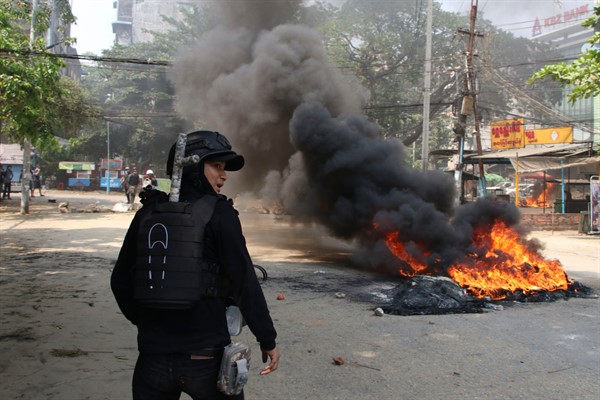In the days after Myanmar’s military staged a coup on Feb. 1, it likely hoped to consolidate power with minimal bloodshed. Having overthrown the elected government led by Aung San Suu Kyi, the Tatmadaw, as the armed forces are known in Myanmar, set out to create a managed democracy like neighboring Thailand’s, with an electoral system that guarantees victory for military-aligned parties and their allies.
The coup leader, Gen. Min Aung Hlaing, probably hoped that neighboring states and possibly even the world’s leading democracies would eventually recognize Myanmar’s new government. Indeed, as protests erupted across the country in the coup’s immediate aftermath, security forces responded at first with crowd control efforts rather than the widespread use of lethal force. The junta even tried to gain the support of some of Myanmar’s ethnic armed groups, many of which had signed cease-fire agreements with Suu Kyi’s government.
But over the past two months, the growing anger and resilience of the protesters have made clear that the demonstrations are not going to stop. In response, the Tatmadaw has stepped up its repression, killing at least 700 people, including dozens of children. Some 2,700 people have reportedly been arrested.

